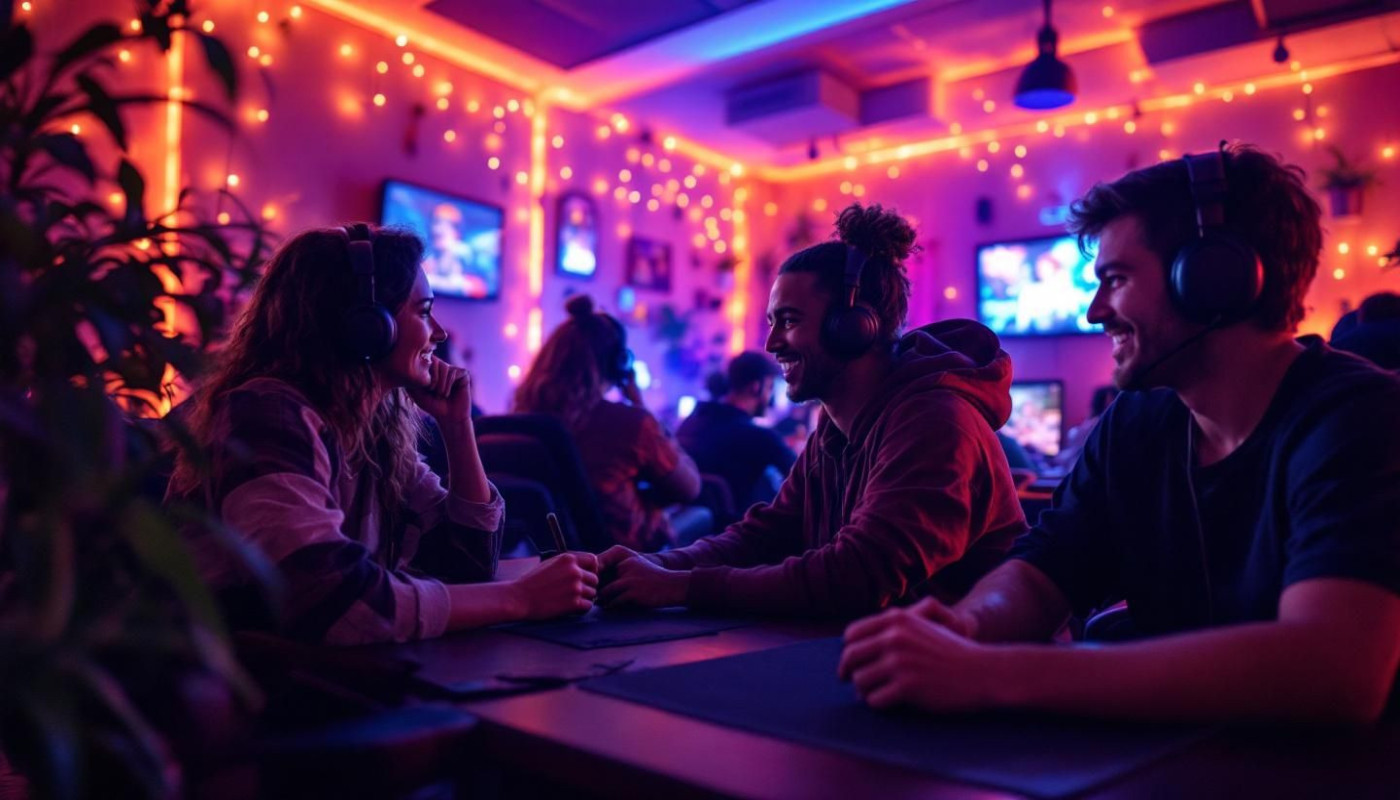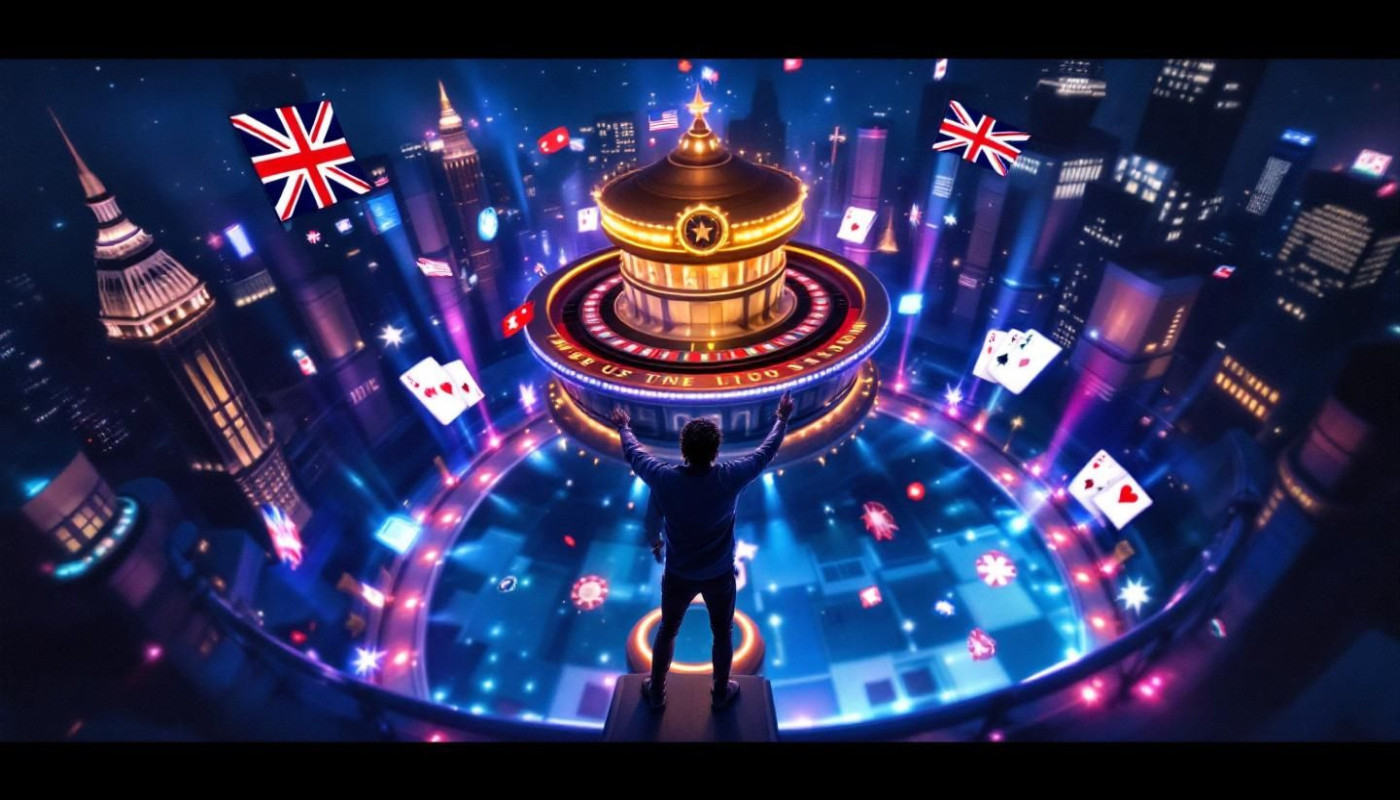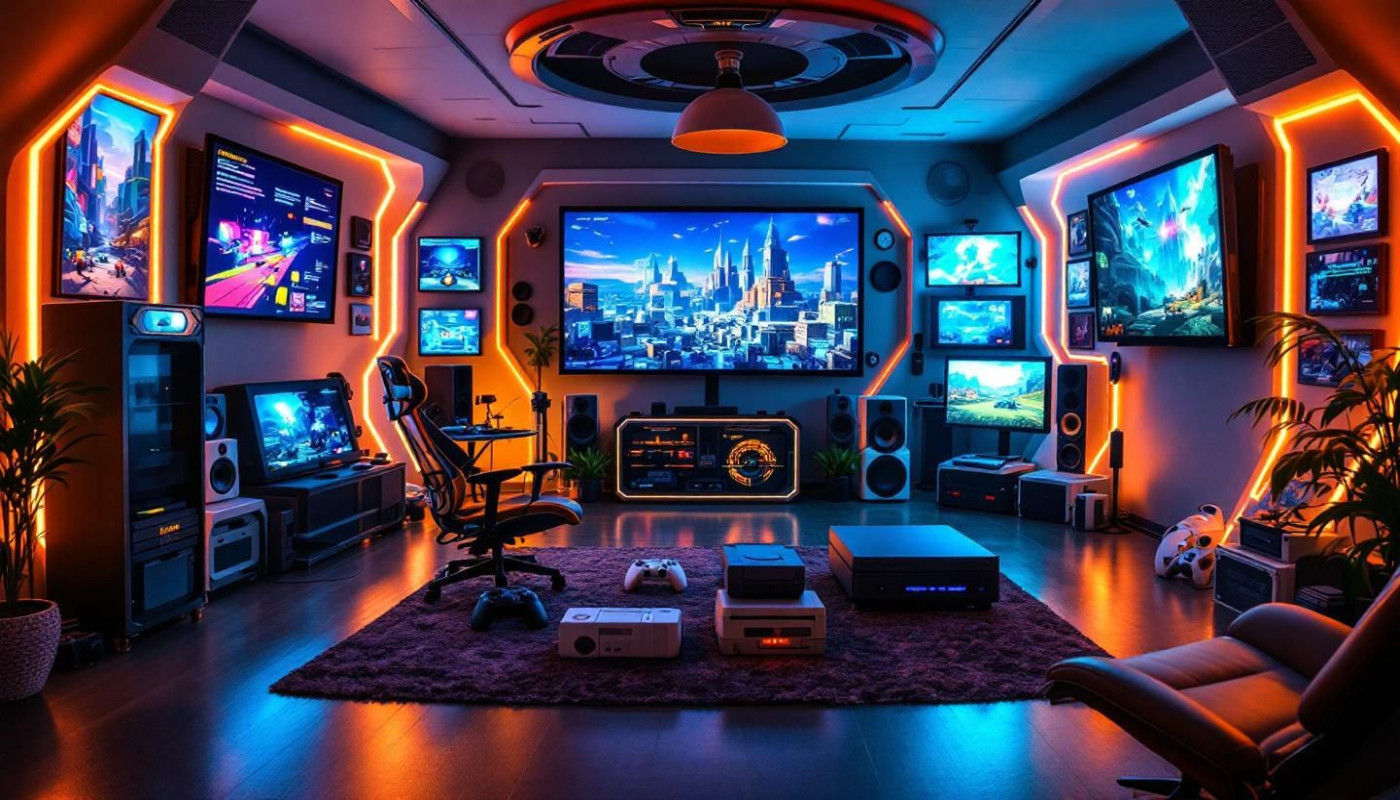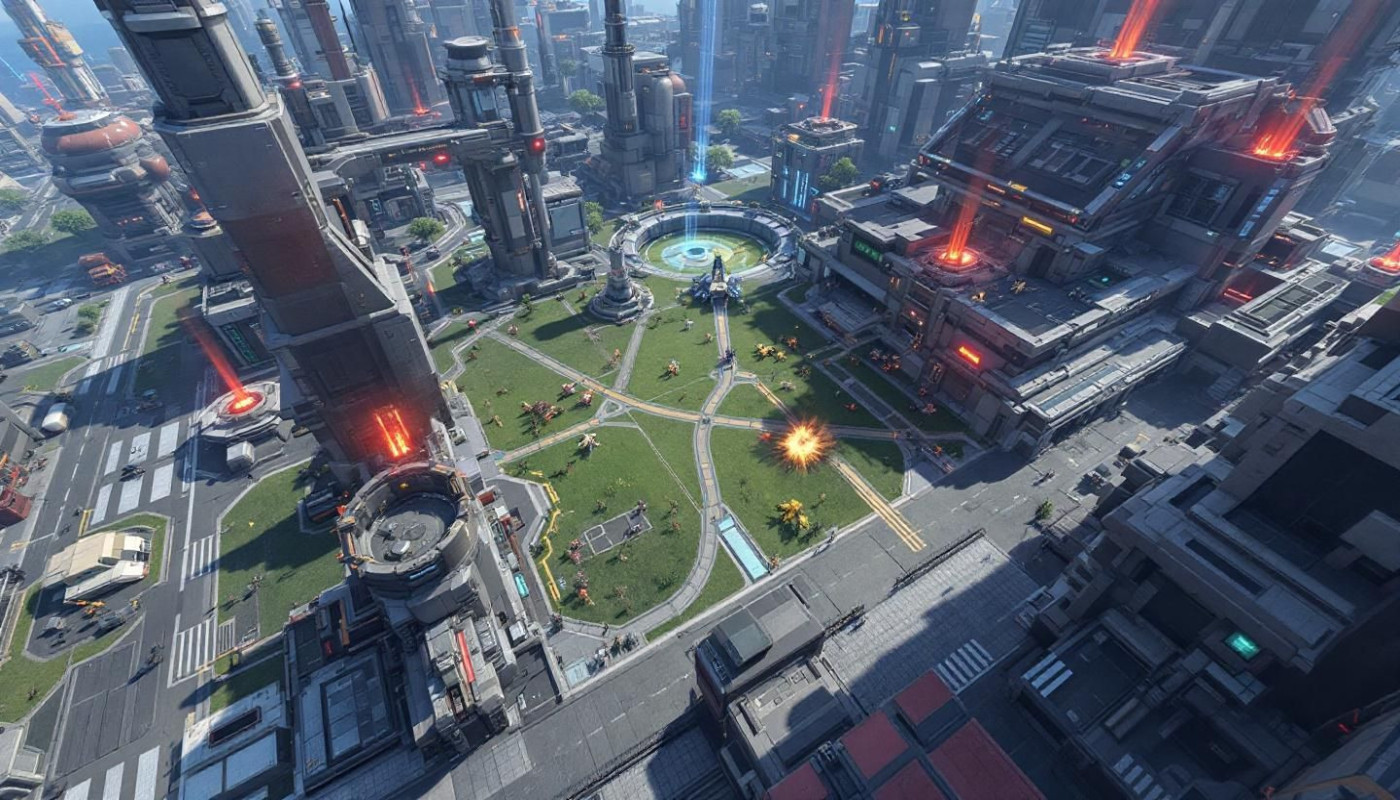Table of contents
Dive into the dynamic interplay between cultural trends and the virtual realms of online gaming. As society evolves, so does the digital landscape, reflecting and shaping our collective experiences. This exploration examines how current cultural movements leave their digital footprint in the world of gaming, influencing themes, mechanics, and player interactions. Uncover the depth to which cultural undercurrents can alter the gaming industry and, perhaps, how gaming can, in turn, influence culture. This voyage is not just about understanding the present gaming scene but also about anticipating its future transformations shaped by cultural tides.
Intersecting Virtual and Cultural Worlds
In the realm of online gaming, the fabric of virtual worlds is often woven with the threads of contemporary culture, resulting in games that not only entertain but also reflect and sometimes shape societal values. From the narratives that drive game plots to the aesthetics that define their worlds and the diversity of characters players can choose from, cultural trends leave an indelible mark on gaming experiences. An anthropological perspective reveals that as societal issues evolve, so do the stories and characters within games, often mirroring real-world movements and dialogues. The thematic development within these games can serve as a barometer for current cultural climates, incorporating elements ranging from fashion and music to politics and social justice. This cultural representation in gaming is not only a testament to the creativity of developers but also an acknowledgment of the societal influence on games. It is evident that character diversity and the inclusivity of different narratives are not just a reflection of online gaming trends but a resonant response to the growing demand for more nuanced and authentic representation in the virtual sphere. As such, the intersection of cultural trends with online gaming offers a unique lens through which to view the interplay between digital entertainment and the evolving values of society.
Game Mechanics and Cultural Reflections
In the realm of online gaming, the evolution of game mechanics often mirrors the transformation of cultural values and practices. As societies evolve, so do the tastes and preferences of the gaming community, necessitating that interactive design adapt accordingly. Cultural ethos in gaming becomes a driving force, where gameplay styles, objectives, and gaming reward systems are carefully crafted to align with the prevailing social narrative. For instance, a game that resonates with a culture's spirit of collaboration may prioritize cooperative missions and team-based achievements, while individualistic societies might see a surge in competitive gameplay that rewards personal success.
It is not just the broad strokes of a culture that shape gaming experiences; even nuanced changes can have a profound impact. As player engagement continues to be a key focus of game design, incorporating relevant cultural motifs or responding to current events can make a game feel more authentic and relevant. This might manifest in the inclusion of traditional aesthetics within a game world, or missions that simulate real-world social dynamics relevant to the player's culture. The implementation of such culturally responsive elements into game design is not merely incidental; it is an intentional effort to create an immersive and relatable experience that resonates with players on a deeper level, fostering a connection that transcends the screen.
Social Media’s Influence on Online Gaming Culture
The intersection of social media and online gaming has given rise to a dynamic ecosystem where in-game experiences are as likely to be shared as they are played. Platforms like Twitch, YouTube, and TikTok have become arenas where user-generated content can catapult a game from obscurity to viral fame. This content ranges from epic gameplay highlights to humorous glitches, all contributing to gaming's virality. Social media gaming trends significantly impact which titles capture the public's imagination, as players are not just consumers but also promoters, sharing their experiences and shaping the narrative around a game.
Online gaming communities thrive on these social platforms, where discussions, tips, and fan theories can elevate a game's status and deepen player engagement. In-game sharing features, such as the ability to post achievements or livestream play sessions, are no longer mere add-ons; they are integral to a game’s design, encouraging players to become active participants in the content creation process. As these social-driven trends continue to evolve, the gaming industry must adapt to stay relevant, ensuring that games not only offer compelling gameplay but also resonate within the broader social media landscape.
Futuristic Projections: Gaming in the Cultural Mainstream
As the future of online gaming unfolds, it stands at the intersection of technological advancement and an ever-evolving cultural tapestry. Mainstream gaming culture is poised to become a reflection of societal norms and a formative influence on the same. In this dynamic landscape, we can expect the narrative evolution within games to mirror contemporary issues, philosophies, and the zeitgeist of the time. Gaming innovation is likely to leap forward, propelled by the integration of cutting-edge technologies and storytelling techniques that resonate with a global audience. As cultural gaming trends permeate the medium, we may witness a symbiotic relationship where real-world cultural shifts inspire game design, and in turn, games influence cultural perspectives and dialogues. The discipline of futurology, with its focus on predicting and analyzing the future, suggests that the digital culture of tomorrow will be marked by a gaming ecosystem that both shapes and is shaped by the cultural currents of the day.
The Role of Globalization in Gaming Evolution
Globalization in gaming has ushered in an era where cultural boundaries blur within the virtual realms of online games. As game developers tap into the vast potential of an international player base, they ingeniously weave a tapestry of cross-cultural gaming experiences. This phenomenon is not just a mere exchange but a dynamic process of cultural hybridity, giving rise to hybrid game genres that blend themes, narratives, and aesthetics from disparate cultures. The advent of cultural diversity in games is not simply an outcome of creative experimentation but a response to the demands of a globally diverse audience seeking reflection and representation within their gaming experiences.
The implications of such a global stage for gaming are manifold. On one hand, it engenders a sense of global community and shared experiences. On the other, it challenges game creators to transcend local narratives and develop content that resonates on a universal scale. This shift toward inclusivity and representation in gaming content is a testament to the power of globalization in shaping a more interconnected and empathetic world through the medium of play. For those interested in exploring how these cultural permutations manifest in the gaming landscape, click here for info.
Similar articles

Exploring The Impact Of Gambling Bonuses On Stress Relief

Exploring The Impact Of Game Variety On User Engagement?

Exploring The Psychology Behind Free Online Demo Games

How Volunteer Service Organizations Impact Global Development?

Exploring The Legal Landscape Of Online Gambling For UK Players In The US

Comparative Analysis Of Original And Sequel Casino Games

Exploring The Impact Of Difficulty Levels In Strategy Games

Exploring The Benefits Of Welcome Bonuses In Online Gaming Platforms

Top Ten Tips For Maintaining A Stylish Lifestyle On A Budget

Exploring The Benefits Of 100% Deposit Bonuses And Free Spins In Online Gaming

Maximizing Your Earnings With Online Lottery Bonuses And Strategies

Responsible Gaming: Tips For Safe Online Betting

The Psychology Behind The Popularity Of Quirky Slot Games

Guide To Choosing Secure Payment Methods For Online Betting

Exploring Alternative Access Methods For Online Betting Platforms

Essential Tips For New Players On Navigating Online Slot Games

Exploring The Benefits Of Comprehensive Online Event Listings

Exploring The Shift From Traditional To Online Casinos

Exploring Traditional And Modern Fashion Trends In Japan

Exploring Low Deposit Options For Online Casino Enthusiasts

Comparing Popular Payment Methods For Online Gambling Sites

Exploring The Features Of Top Betting Platforms For Effective Wagering

Exploring The Full Range Of Services Offered By Top Betting Brokers

Exploring The Perks Of VIP Memberships In Online Casinos

